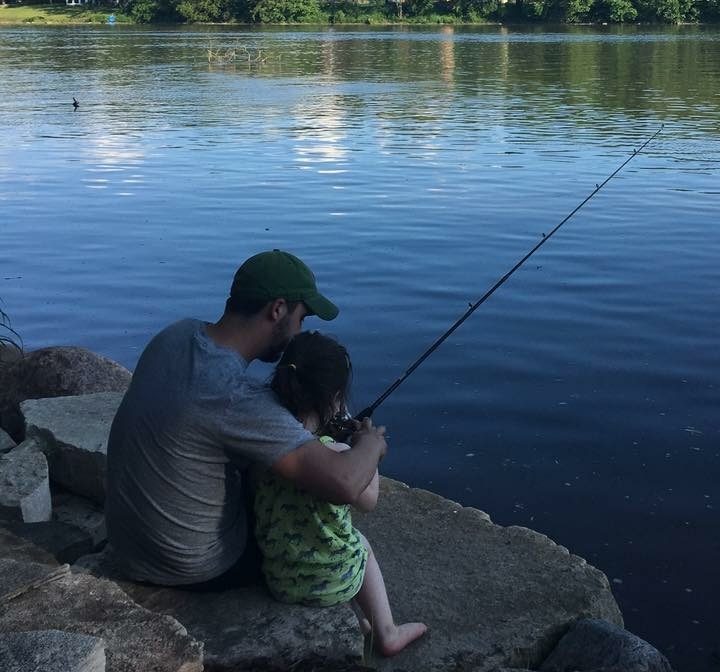By Jenni Schiavone
Dear Caregivers,
The Friends of the Fox River (FOFR) Education Design Team and I feel it is important to reach out to all caregivers to acknowledge and celebrate the work that you do without knowing you are doing it. Let this digital message be the conduit between my heart and all of yours. If you have a child/children home from school, you are leading their educational journey around the clock, just as you did when you taught them how to eat, speak, and gain mobility. 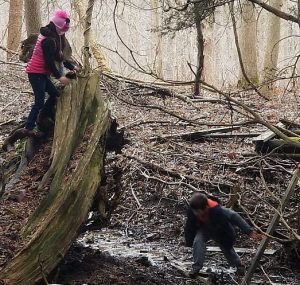
A child’s caregiver teaches without training, certification, lesson plans, or quantifying the learning process. Learning happens organically and authentically as a child models the behaviors and thinking of others. Our call to action to all caregivers is to view this current global challenge as an unprecedented opportunity to bolster the education connection between the child and the child’s first teacher — you.
Education in the Time of Covid-19
The streets are quiet and fewer aircraft pass overhead. The timing of forced sound reduction couldn’t be better as the sounds of spring grow louder each day. One February morning when I entered my daughter’s room to wake her up for school, I found she was awake already. She made sure to tell me right away that she had been listening to the season’s first chickadees calling outside her window (yes!).
The National Audubon Society has a couple of great web pages for beginner birders, young and old. Soon we can listen for frogs with our children, too. The wood frog, spring peepers, and chorus frogs will begin calling soon, truly heralding spring’s beginning.
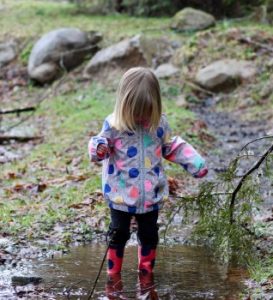 The roots of education are in play and inquiry. Fortunately, the natural world remains a healthy place for both of these experiences. Nature play is explorative and imaginative. A downed tree can be a bridge to a distant land and the forest floor may be lava—so watch out!
The roots of education are in play and inquiry. Fortunately, the natural world remains a healthy place for both of these experiences. Nature play is explorative and imaginative. A downed tree can be a bridge to a distant land and the forest floor may be lava—so watch out!
Inquiry-based learning starts with curiosity. We all know how great children are at being curious and asking questions. What sets modern day caregivers apart from our predecessors, even a few generations ago, is that we can seek answers to curious questions instantly with our handheld devices. For example, a colleague of mine showed me a tool he frequently uses to identify plants in the field. The Google Lens app allows users to point a phone’s camera at objects to generate 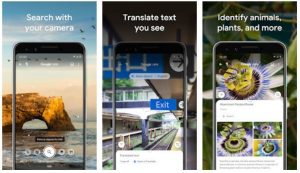 descriptive information about the object, i.e. what the object is. This is extremely handy for plant identification, especially now, as plants are just poking their way out of the softened, warmed earth.
descriptive information about the object, i.e. what the object is. This is extremely handy for plant identification, especially now, as plants are just poking their way out of the softened, warmed earth.
Consider the value of this app and other tools like it in providing opportunities for both children and adults to be students of the natural world together. With or without digital tools, taking the time to carefully observe, describe, question, compare, and contrast builds upon skills that crosscut many of the aspects of the human growth experience. These skills can help us understand ourselves, how we relate with others, and realize our shared responsibility as human beings on planet Earth.
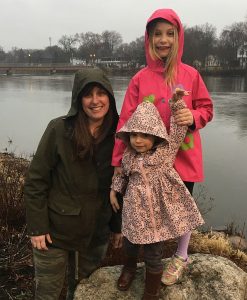 My current role as Friends of the Fox River Educator has changed dramatically as so many of our lives have. Wisdom from my elders keeps reminding me to take it one day at a time. There are silver linings where we are concentrating our efforts. One of them is strategizing new ways that FOFR can help caregivers facilitate learning at home and outdoors.
My current role as Friends of the Fox River Educator has changed dramatically as so many of our lives have. Wisdom from my elders keeps reminding me to take it one day at a time. There are silver linings where we are concentrating our efforts. One of them is strategizing new ways that FOFR can help caregivers facilitate learning at home and outdoors.
Stay tuned to our Facebook page and website for possible updates on programming we are developing. For now, I hope celebrating the sights and sounds of spring together with the children in your world, while making space for quiet reflection, are powerful experiences. Please reach out to me directly at jennischiavone@gmail.com if you are hungry for more resources to aid in the exploration and discovery of the natural world.
Sincerely,
Jenni Schiavone
FOFR Lead Educator
Resources Referenced in Article
Google Lens – app for field identification
National Audubon Beginning Birding part 1
National Audubon Beginning Birding part 2

